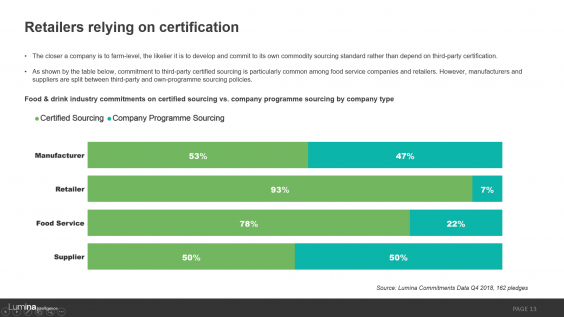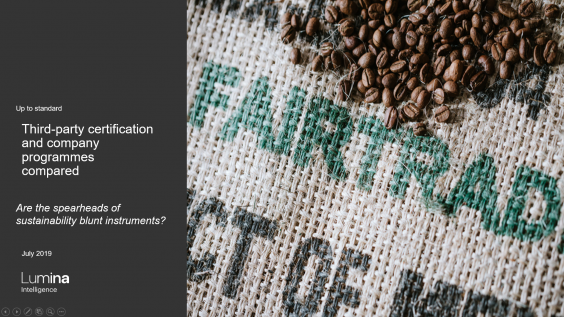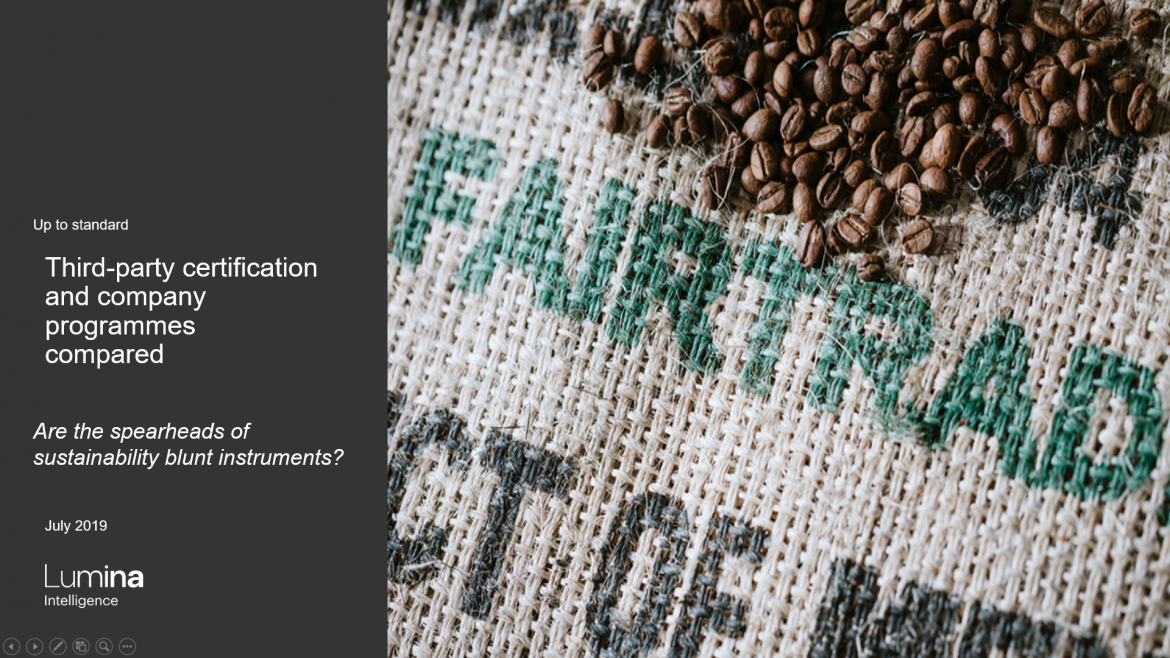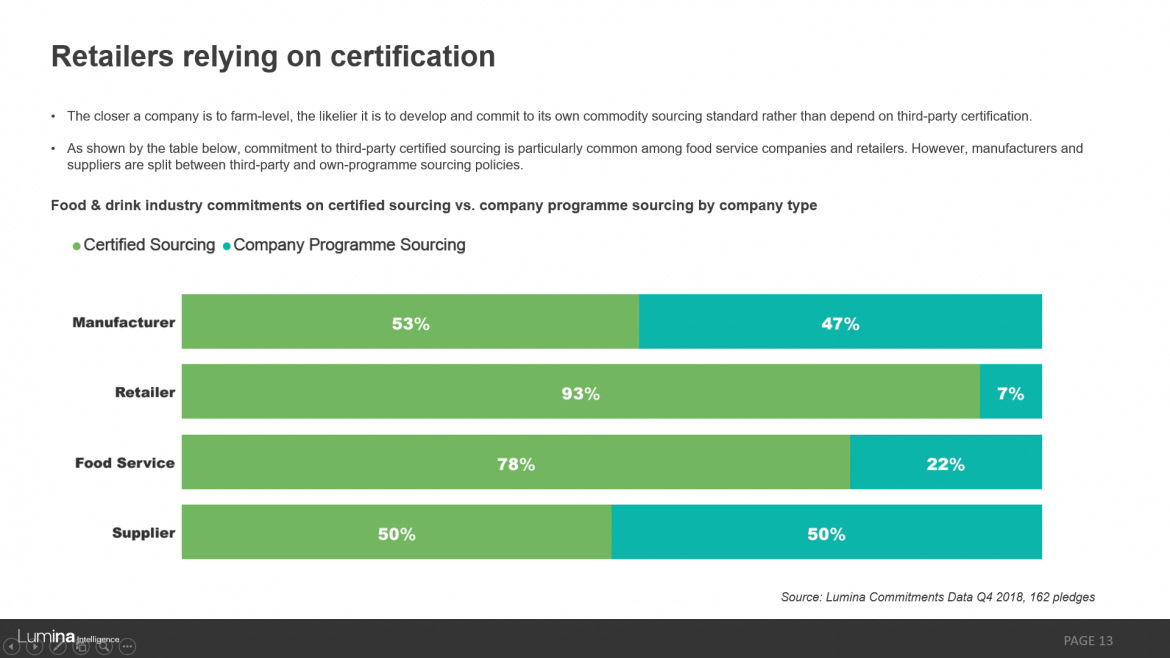Published July 2019. Lumina Intelligence’s report ‘Up to standard: Third-party certification and company programmes compared’ analyses the impact of and consumer sentiment towards third-party certification standards, such as Fairtrade, Rainforest Alliance and company programmes like the Nestlé Cocoa Plan, Cocoa Life and Starbucks’ C.A.F.E. Practices.
€900
What this report tells you:
- Individual cocoa, coffee and tea sourcing commitments (third-party certified vs. company programme) across 34 major manufacturers, suppliers and retailers including Tesco, Twinnings, Starbucks, McDonalds, Nestlé and more.
- Different standards affecting price and online engagement (star ratings, reviews and social media scores) across 20 countries worldwide based on Lumina’s product research of almost 3,000 bestselling chocolate, coffee and tea brands.
- Sustainable sourcing commitments for three key agricultural commodities (cocoa, coffee and tea), comparing volumes and standards per commodity and consumer sentiment for ethical claims in the growing online space.
- Impact against SDGs. Gauge how well aligned each certification and company programme is to the UN’s 2030 Sustainability Development Goals through the latest available scientific studies, audits and NGO reports assessing effectiveness.
- Recommendations that businesses, governments and non-profits can consider to ensure claims are credible and contribute to sustainable development.
Quick facts:
- Lumina finds 1,395 sustainable claims made on pack and in product descriptions among the bestselling chocolate, coffee and tea products online.
- These include generic fair trade claims, 17 different organic certifications, five different company sustainability programme claims and seven third-party certification claims.
- 16% of captured products were third-party certified (excluding organic), 4% were company programme certified and 8.5% had an organic claim.
- Products carrying sustainable claims are on average 6% more expensive, but price-sensitive consumer engagement with these brands (by review volumes and star ratings) is typically low in online retail spaces.
- Countries with the highest concentration of sustainable products tend to be European with France (57%), Belgium (53%), Sweden (45%), Germany (45%) and the UK (44%) leading the way. The US comes in at 31%. India and South Africa show the most promise among emerging among economies.
Preview:
Chapters
- Introduction
- Commitments
- Sustainable communications
- Chocolate, coffee & tea comparison
- Impact against SDGs
- Conclusion & recommendations
Total slides: 69
The United Nations Sustainable Development Goals 2030
Our guide looks at the imperative issues facing the planet and the food and drink industry as defined by the UN’s Sustainable Development Goals. We analyse on which goals the food and drink private sector is focused, as well as the players pulling their weight.





